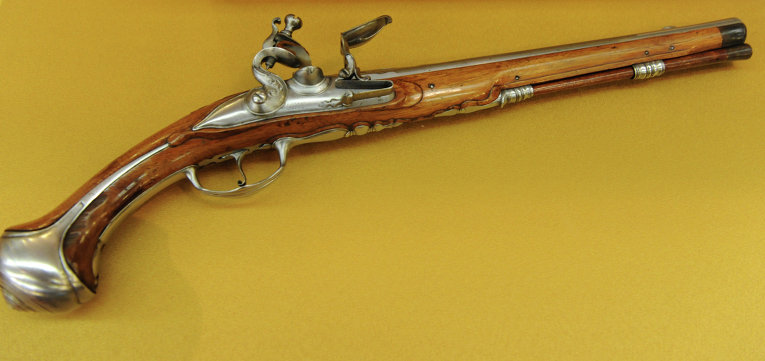ST. PETERSBURG, June 17 (RAPSI) – Russia’s Constitutional Court ruled on Tuesday that clear regulations should be developed for the antique cutting weapons business.
The court considered the issue at the request of Natalya Uryupina. In 2005, she moved to sell two German cutlasses from the Weimar Republic period, which she inherited from her father. The court found her guilty of attempted cold steel trafficking. Uryupina, who maintained her innocence, was later pardoned.
The Constitutional Court has ruled that Clause 4 of Article 222 of the Criminal Code and several articles of the federal law On Weapons, which Uryupina was contesting, “do not take into account the specifics of cold steel weapons as items of cultural value and also stipulate criminal responsibility that is disproportionate to the social damage” for actions involving such weapons.
The court also ruled that the contested provisions do not contradict the constitution, but that the provisions of Clause 4 of Article 222 as applied to antique weapons contradict Articles 19, 35 and 55 of the Constitution. More precisely, they lack legal clarity and infringe on the right of ownership.
The reporting judge in the case, Nikolai Seleznyov, said that the law On Weapons, which came into effect in 2012, permits the storage and acquisition of antique weapons but bans an unlicensed sale, “which runs contrary to the spirit of the law.”
“Having ruled that this provision contradicts the constitution, the Constitutional Court has allowed the sale of weapons of cultural and historical value,” Judge Seleznyov said.
The Constitutional Court said the parliament should adopt clearer regulations for the sale and purchase of cold steel weapons as items of cultural value and approve proportionate punishment for the violation of these rules.
The court also decided that Natalya Uryupina’s case should be returned for review.



